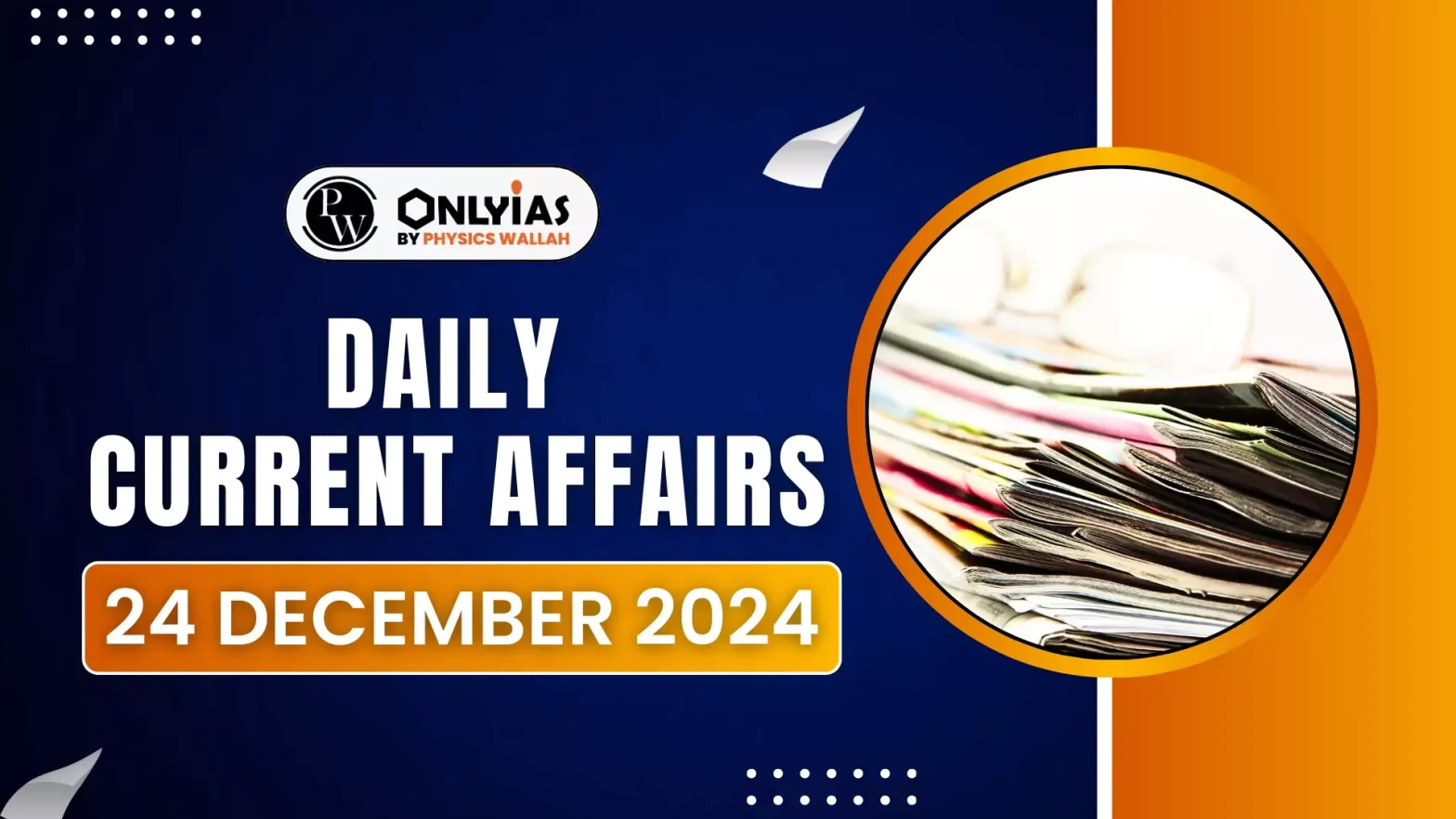The Union government has notified the Telecommunications (Procedures and Safeguards for Lawful Interception of Messages) Rules, 2024.
What is Message Interception?
- It is the act of secretly accessing or capturing messages sent between two or more people without their permission.
- The new rule regarding message interception aims to safeguard national security while addressing concerns over potential Right to Privacy violations.
- It replaces Rule 419A of the Indian Telegraph Rules, 1951.
Enroll now for UPSC Online Course
Key Features of the New Rules
- Purpose: To allow authorized agencies to intercept messages for specific reasons and for limited durations.
- It is based on existing call interception protocols.
- Duration: Interception permitted for a maximum of six months.
- Competent Authorities for Approvals
- Union Level: Home Secretary.
- State Level: Chief Secretary.
- Urgent Cases: Joint Secretary or Inspector General-level officers can issue interim orders, subject to confirmation by the competent authority within three working days.
- Failure to confirm within 7 working days will terminate the interception, and collected data cannot be used as evidence.
Judiciary view on intercepted conversation
- R.M. Malkani v. State of Maharashtra (1973): This case revolved around the question that criminal prosecution can be started against a person on just part of telephonic conversation or not.
- Admissibility of telephonic conversation: In this case, SC ruled that a recorded telephonic conversation , if it is relevant and does not violate any provision of Indian evidence act (IEA), can be used as evidence.
- However, it should be recorded in such a way so that accuracy can be verified.
Differences Between New Rules and Rule 419A
| Base |
Rule 419A |
New Rule |
| Relaxation of ‘Emergent Cases’ Condition |
Allowed interception only in emergent cases. |
Broadened scope to include “remote areas” or “operational reasons.” |
| Limits on Authorized Officers |
No limit on the number of officers at the Inspector General rank at the state level. |
Only the head or the second senior-most officer of the authorized agency can issue interception orders. |
| Validation of Interception Orders |
No specific validation timeline. |
Orders not confirmed within seven days become invalid, and collected data cannot be used. |
Key Concerns
- Potential for Misuse: There are concerns that these rules could be misused by authorities, leading to unwarranted surveillance of citizens.
- Privacy Violation: These rules infringe on the fundamental right to privacy of individuals.
Check Out UPSC Modules From PW Store
Old framework for message interception
- Indian Telegraph Act, 1885 : The Indian Telegraph Act, 1885, granted the government powers to intercept messages for reasons such as public safety and national security.
- Rule 419A (2007): It was introduced in 2007 following the landmark Supreme Court judgment in the case of PUCL vs. Union of India (1996).
- The PUCL ruling emphasized the importance of protecting an individual’s Right to Privacy under Article 21 of the Constitution.
- Key provisions introduced under Rule 419A:
- Clear approval process for interception.
- Accountability mechanisms for law enforcement agencies.
- Oversight by senior officials to ensure that interception is not misused.
How Does Message interception Happen?
- Man-in-the-Middle (MITM) Attack: Hackers place themselves between the sender and receiver to capture messages.
- Network Sniffing: Monitoring unsecured networks like public Wi-Fi to steal data.
- Malware: Malicious software is used to access or redirect messages.
- Man-in-the-Middle (MITM) Attack
- SIM Swapping : Attackers duplicate a SIM card to intercept SMS messages and calls.
- Phishing: Tricking users into sharing login credentials through fake emails or websites to access communications.
- Exploitation of Software Vulnerabilities : Using outdated or flawed software to gain unauthorized access to messages.
- Why Is It Done?
- To spy on individuals or organizations.
- To steal sensitive information like passwords or bank details.
- For government or agency surveillance.
- Effects:
- Breach of privacy.
- Loss of personal or sensitive data.
- Can lead to legal and ethical problems.
- How to Prevent It?
-
- Use apps or platforms with end-to-end encryption.
- Avoid using public Wi-Fi for important communications.
- Keep your software and devices updated.
- Use strong passwords and secure your accounts.
|
![]() 24 Dec 2024
24 Dec 2024
